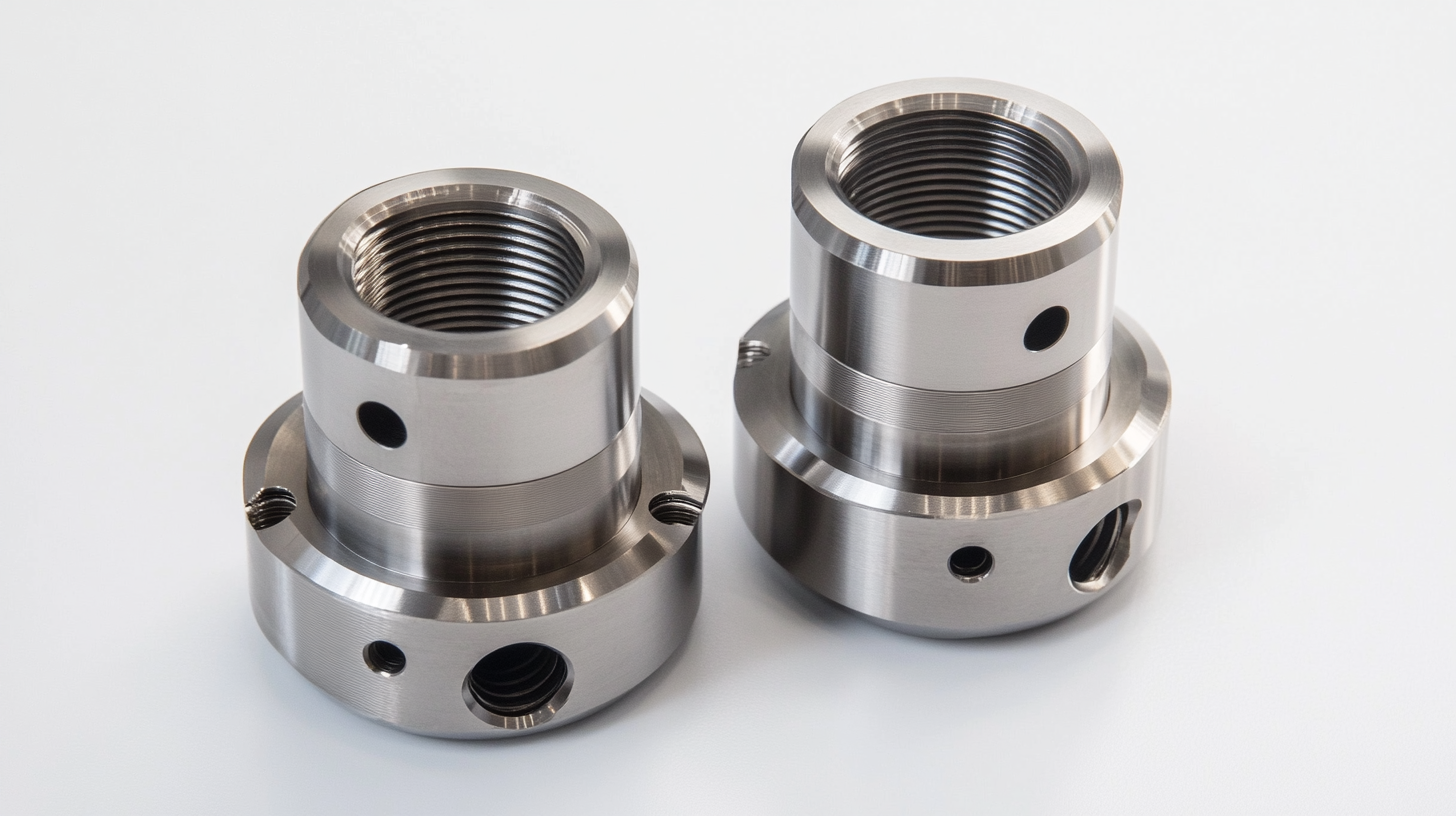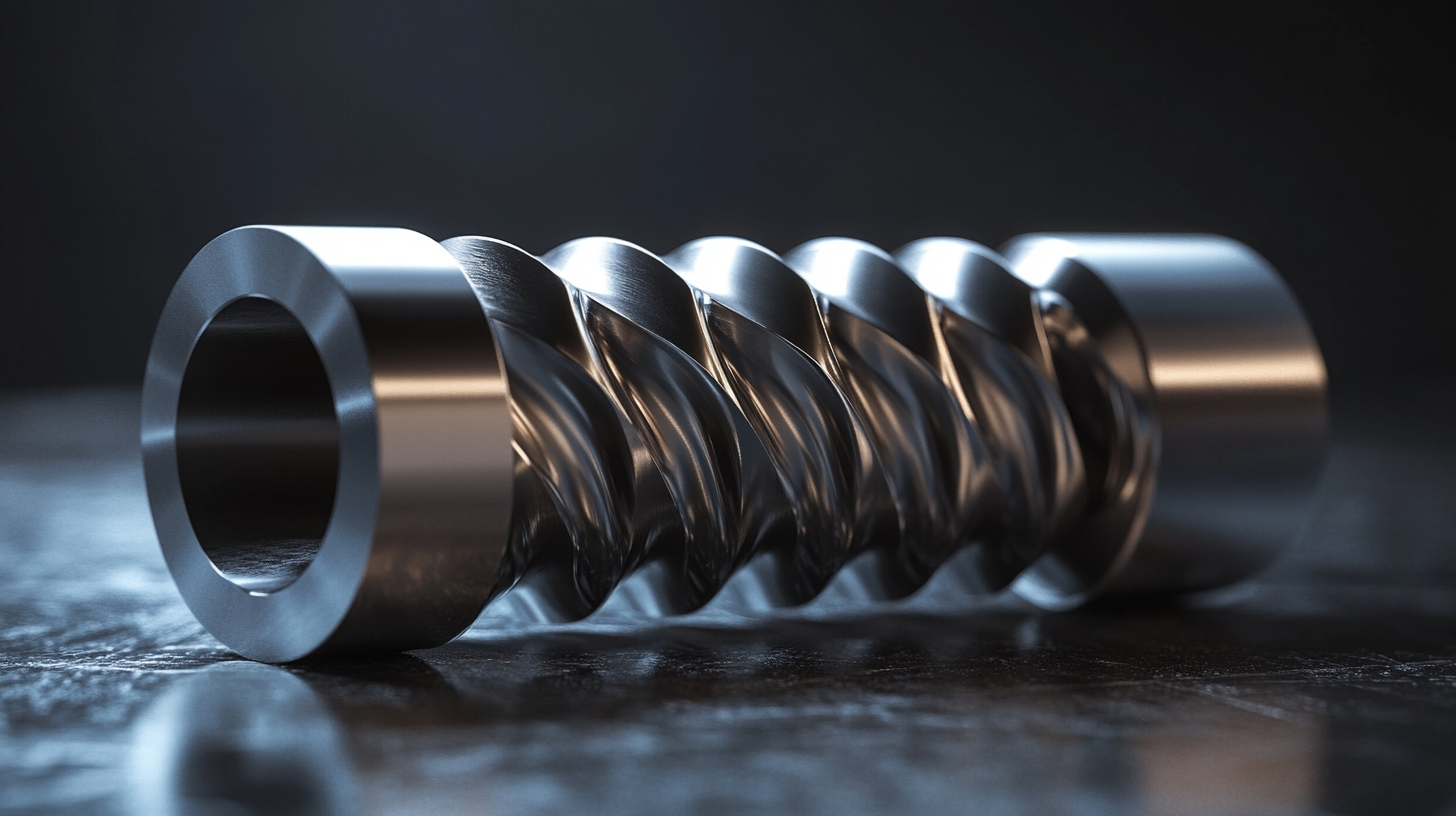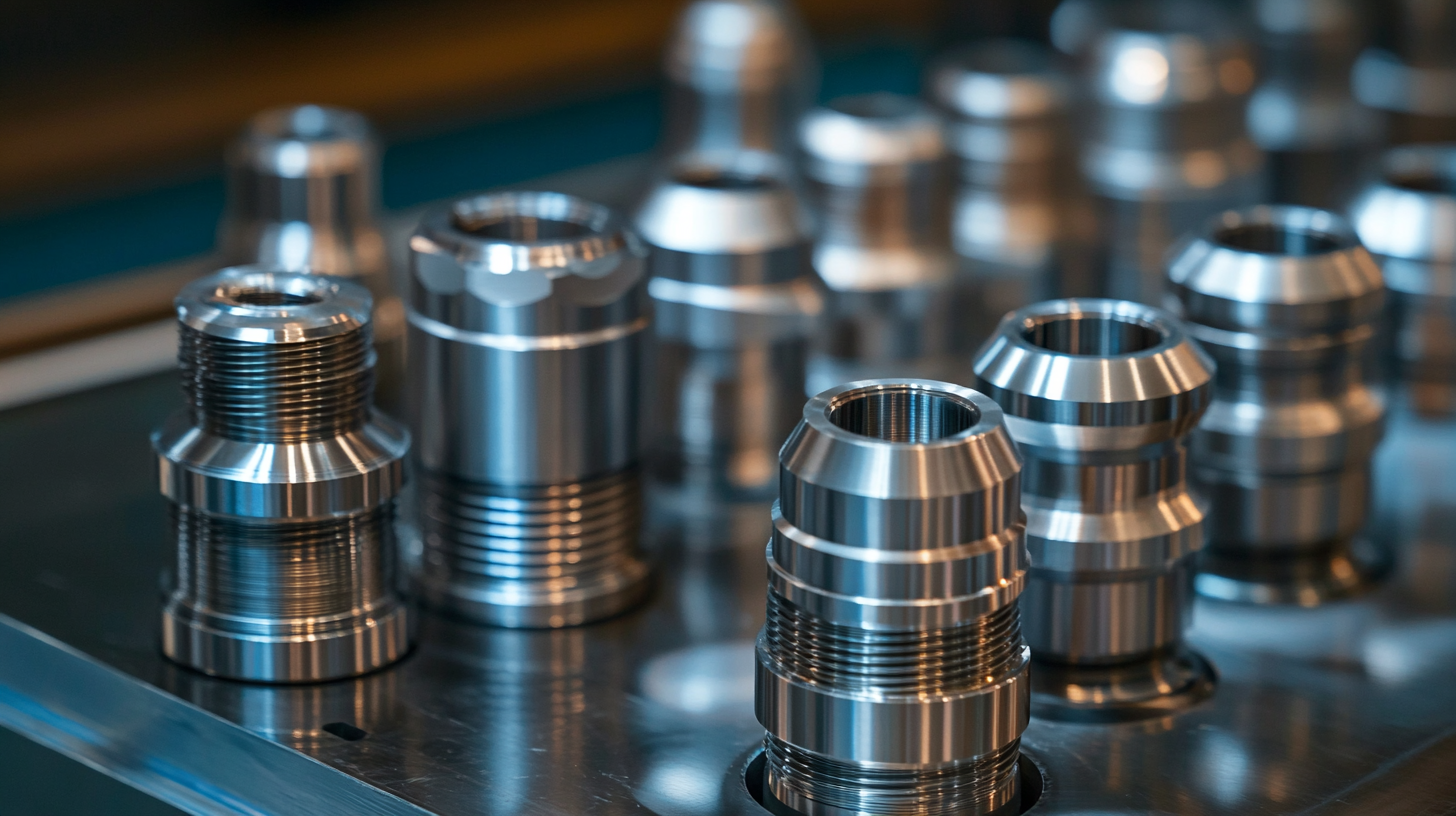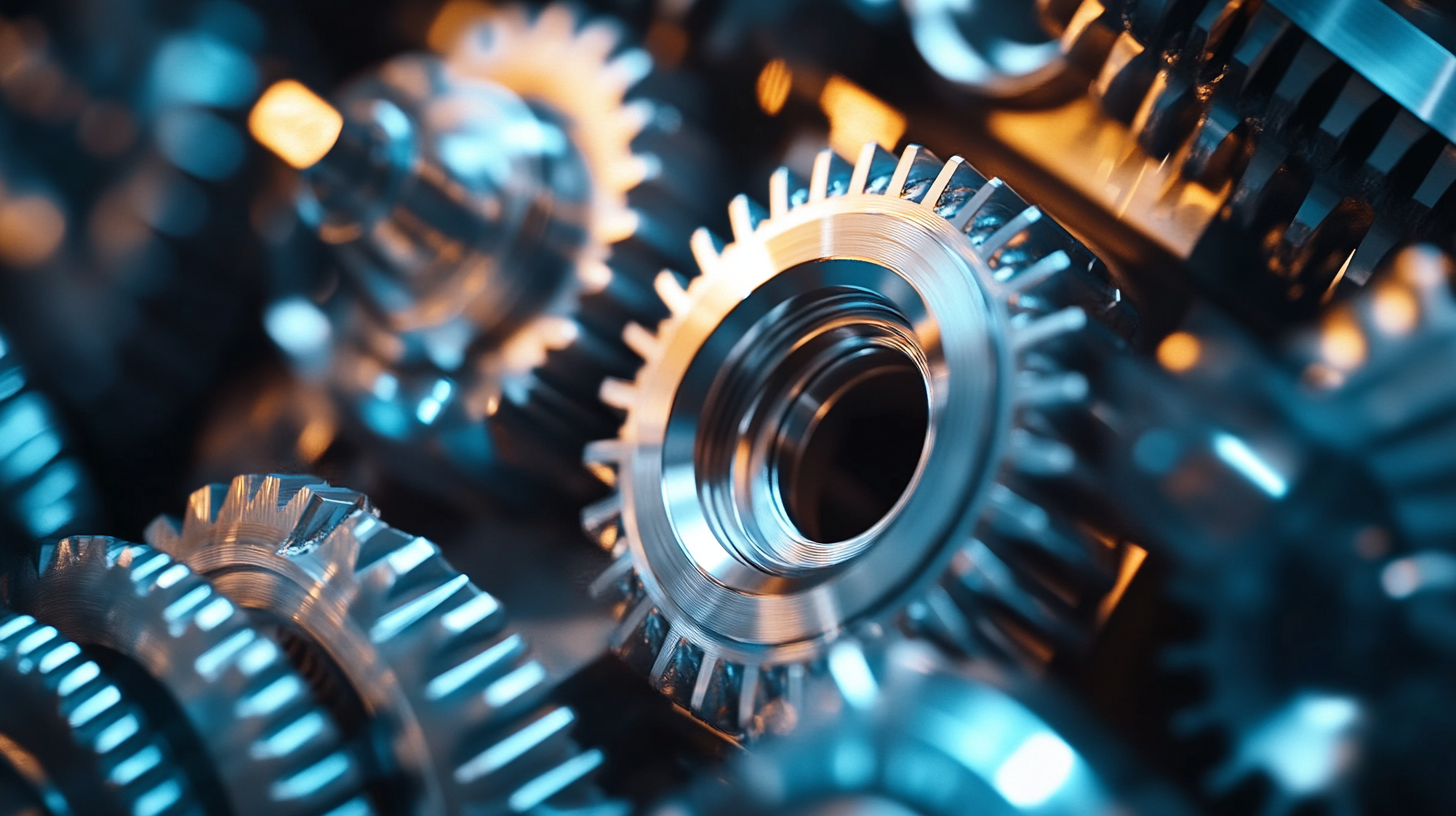920-726-4526
In the competitive landscape of manufacturing, selecting the right partner for precision CNC machining is crucial to the success of your projects. As industries evolve and the demand for intricate parts and components increases, the ability to identify top-tier manufacturers becomes imperative. Precision CNC machining offers a distinct advantage due to its ability to produce complex geometries with exceptional accuracy, making it essential for various sectors including aerospace, automotive, and medical.
This guide aims to navigate the complexities of choosing the best manufacturers in the field of precision CNC machining. By understanding the key factors that distinguish elite manufacturers from the rest, you can streamline your selection process and ensure that you collaborate with a partner capable of meeting your high standards for quality and performance. Whether you are an engineer, product designer, or procurement specialist, this comparison guide will equip you with the insights needed to make informed decisions that align with your operational goals.

Precision CNC machining is at the forefront of modern manufacturing, with the global precision machining market estimated to reach USD 107.06 billion in 2023, expected to grow at a CAGR of 7.8% through 2030. This growth highlights the increasing demand for high-quality, precise components across various industries. The process involves using computer numerical control systems to automate machine tools, allowing for unmatched precision and repeatability in manufacturing. Key types of CNC machines include metal cutting machines and metal forming machines, both playing crucial roles in the production landscape. The CNC router machine market alone was valued at USD 691.0 million in 2023, with projections indicating a CAGR of 3.5% from 2024 to 2030. These machines excel in creating intricate designs from materials like wood, foam, and soft metals, making them invaluable for applications across industries from aerospace to consumer goods. Additionally, the CNC controller market has seen substantial growth, valued at $3.2 billion in 2023 and estimated to reach $7.2 billion by 2033, reflecting an annual growth rate of 8.3%. This surge is primarily driven by advancements in technology and the increasing integration of automation in manufacturing processes. Identifying top-tier manufacturers in this space requires an understanding of these key concepts, as well as the performance and reliability of various CNC machining tools and technologies.

When evaluating top tier manufacturers in CNC machining, it is essential to consider various criteria that underscore their capabilities and reliability. One of the primary aspects is technological advancement. According to a report highlighting China’s manufacturing development during the 2020-2022 period, the country has demonstrated resilience and stable growth, emerging as a leader in precision machining. This advancement often correlates with the adoption of cutting-edge technologies such as automated systems and collaborative robots, which enhance efficiency and precision in production.
Another critical factor in identifying top tier manufacturers is their adherence to quality standards and certifications. Companies that maintain ISO 9001 or AS9100 certifications reflect a commitment to quality management systems, essential for ensuring consistent product quality. Their ability to comply with stringent industry standards often indicates a thorough understanding of the precision machining landscape, which is vital in fields requiring high reliability, such as aerospace and medical device manufacturing.
Finally, examining a manufacturer's portfolio of past projects can provide valuable insights into their expertise and craftsmanship. Notably, manufacturers that engage in high-value precision machining demonstrate a capacity to handle complex geometries and tolerances, thus assuring potential clients of their proficiency. Analyzing case studies and client testimonials can further validate a manufacturer’s capability, ensuring that they are well-equipped to meet specific project requirements and deliver superior quality outcomes.

When searching for top-tier manufacturers for precision CNC machining, understanding the key technologies and machinery they utilize is crucial. Leading CNC manufacturers invest in state-of-the-art equipment and cutting-edge technology to ensure high precision and efficiency. For instance, advanced CNC mills and lathes equipped with multi-axis capabilities allow for complex shapes and intricate designs to be machined with outstanding accuracy. These machines not only improve the overall production process but also reduce the margin for error, resulting in higher-quality end products.
Furthermore, automation and robotics are becoming increasingly significant in the CNC machining industry. Manufacturers that implement automated systems can achieve higher throughput and consistency while minimizing human intervention. This includes the use of robotic arms for loading and unloading parts, as well as automated inspection systems that guarantee every component meets stringent quality standards. These technological advancements not only streamline operations but also enhance the competitiveness of manufacturers in a rapidly evolving market.
In addition to machinery, software solutions like Computer-Aided Design (CAD) and Computer-Aided Manufacturing (CAM) play an essential role in the CNC machining process. These technologies enable manufacturers to design intricate parts and create optimized machining plans, ensuring efficient resource utilization and improved turnaround times. By leveraging these key technologies and machinery, leading CNC manufacturers can deliver high-quality precision components that meet the demanding requirements of various industries.

In the realm of CNC machining, the importance of stringent quality control standards cannot be overstated. As industries like medical device manufacturing require unparalleled precision, the implementation of advanced quality control measures is essential. Recent advancements, such as utilizing enhanced machining technologies, allow manufacturers to achieve nanometer resolution, elevating surface and edge quality to unprecedented levels. This precision not only meets, but often exceeds, the expectations of medical device manufacturers who rely on impeccable performance and reliability in their products.
Moreover, the evolution of smart manufacturing has brought forth sophisticated tools like advanced probes and styli, which function as critical sensors in the quality control process. These innovations contribute to a more automated and accurate inspection environment, greatly reducing the likelihood of defects. The integration of AI further revolutionizes quality assessments, ensuring that traditional inspection methods keep pace with the complexities of modern manufacturing.
Additionally, the growing trend of digital manufacturing and tools like 3D scanning highlight the ongoing efforts to simplify quality control processes. By enabling thorough analysis of production parts in real time, manufacturers can swiftly identify deviations and mitigate risks of warp. Such technology not only enhances the efficiency of quality control but also fosters a more agile manufacturing landscape, essential for maintaining competitive advantages in today’s fast-paced market.
When searching for top-tier manufacturers for precision CNC machining, evaluating a manufacturer’s reputation is crucial. A strong reputation often stems from positive customer reviews, relevant certifications, and extensive industry experience. Reading customer feedback provides insight into the reliability and quality of a manufacturer’s work. Look for feedback that highlights the consistency of their output, turnaround times, and their ability to meet stringent requirements.
Certifications play a significant role in establishing credibility within the precision machining industry. Manufacturers holding ISO certifications, for example, demonstrate adherence to international quality management standards. This not only assures clients of their capabilities but also reflects a commitment to continuous improvement. In addition to certifications, consider the manufacturer’s experience in specific markets or applications. A company with a wealth of experience in your particular industry will be better equipped to understand your unique needs and challenges.
Furthermore, the evolving landscape of cross-border supply chain compliance adds another layer of complexity when selecting a manufacturer. Understanding how a manufacturer navigates compliance regulations, both domestically and internationally, can prevent costly disruptions. Manufacturers that prioritize compliance and maintain transparent practices are more likely to build sustainable partnerships. Therefore, assessing a manufacturer’s reputation comprehensively—through reviews, certifications, and experience—ensures you are making an informed choice in your CNC machining endeavors.
5107 County Road C
Manitowoc, WI 54220
920-726-4526